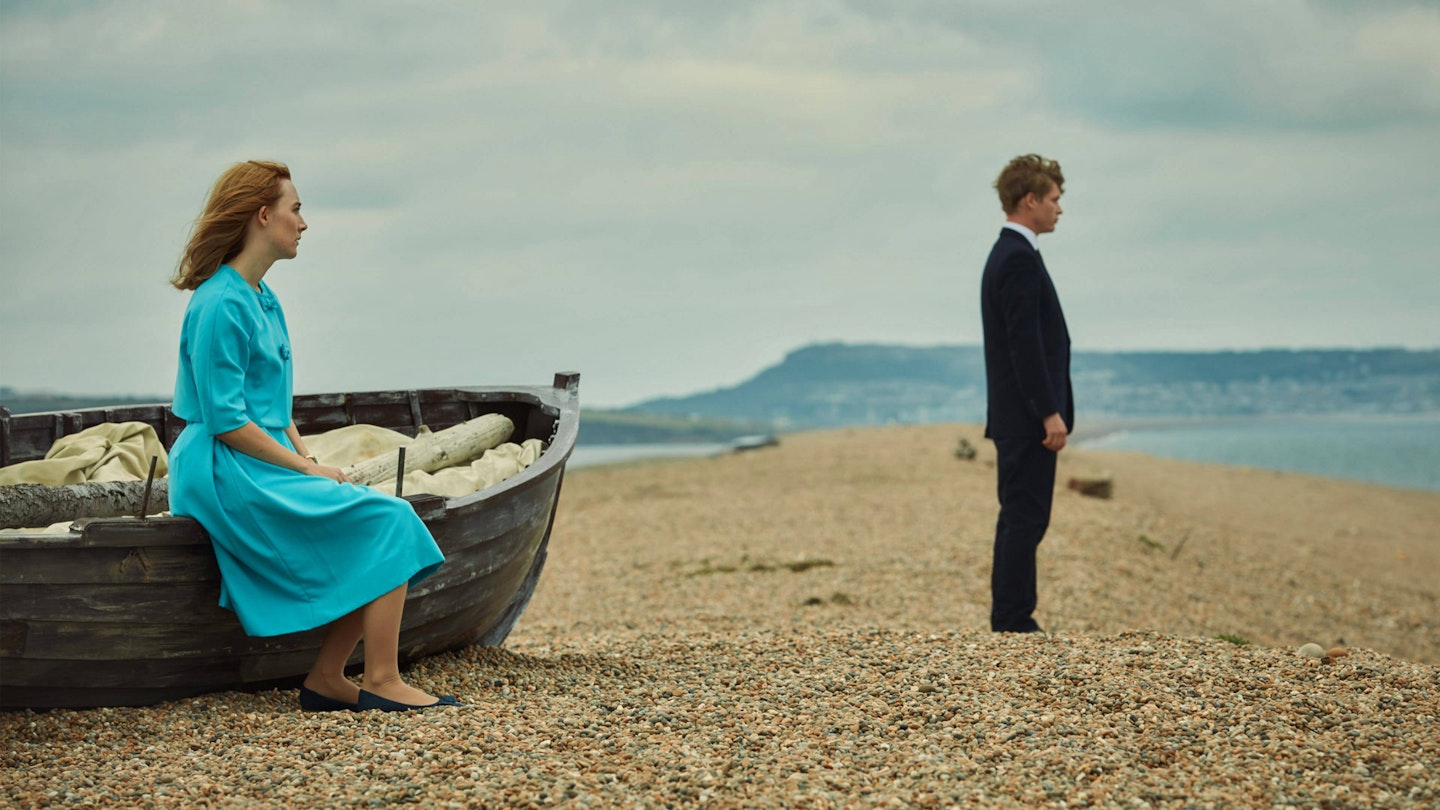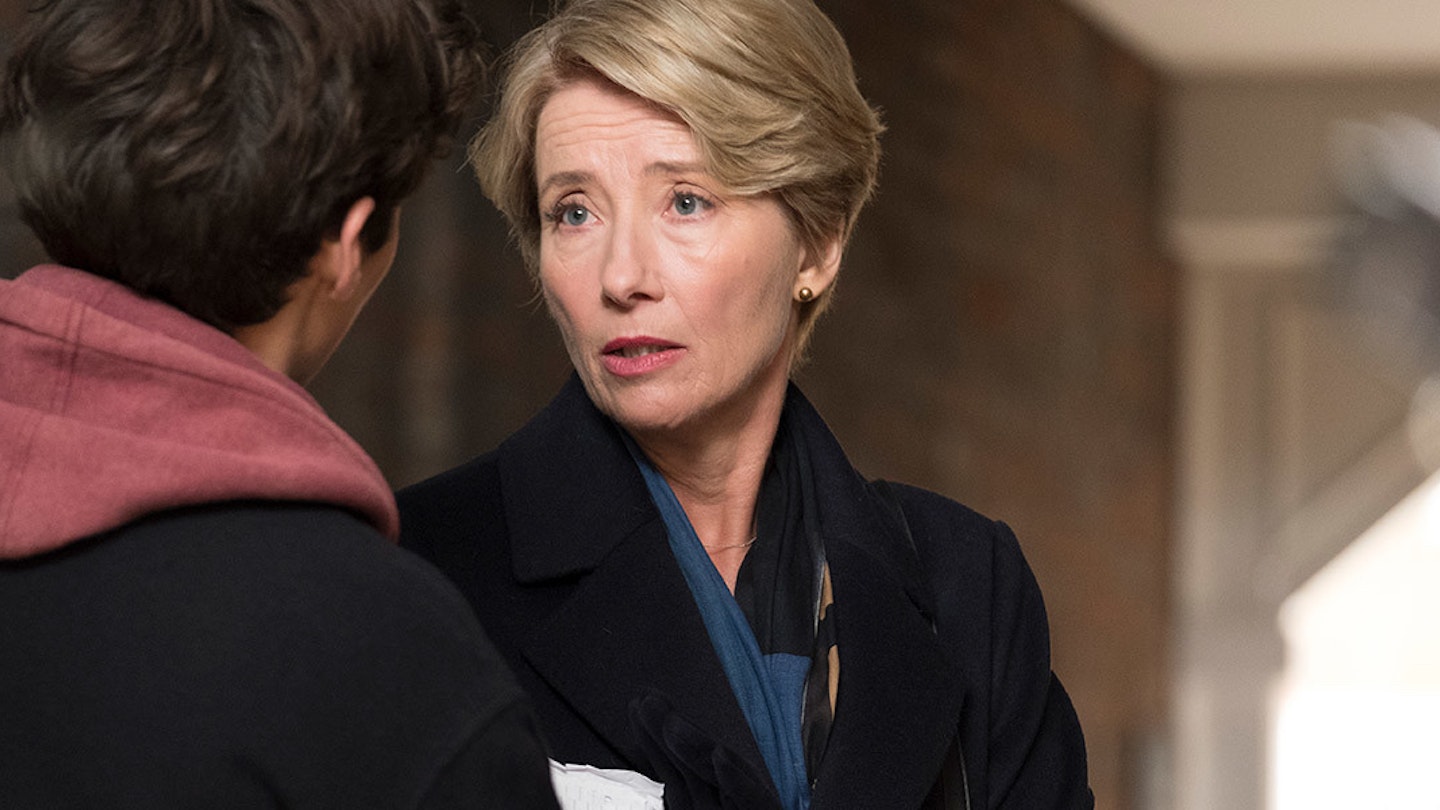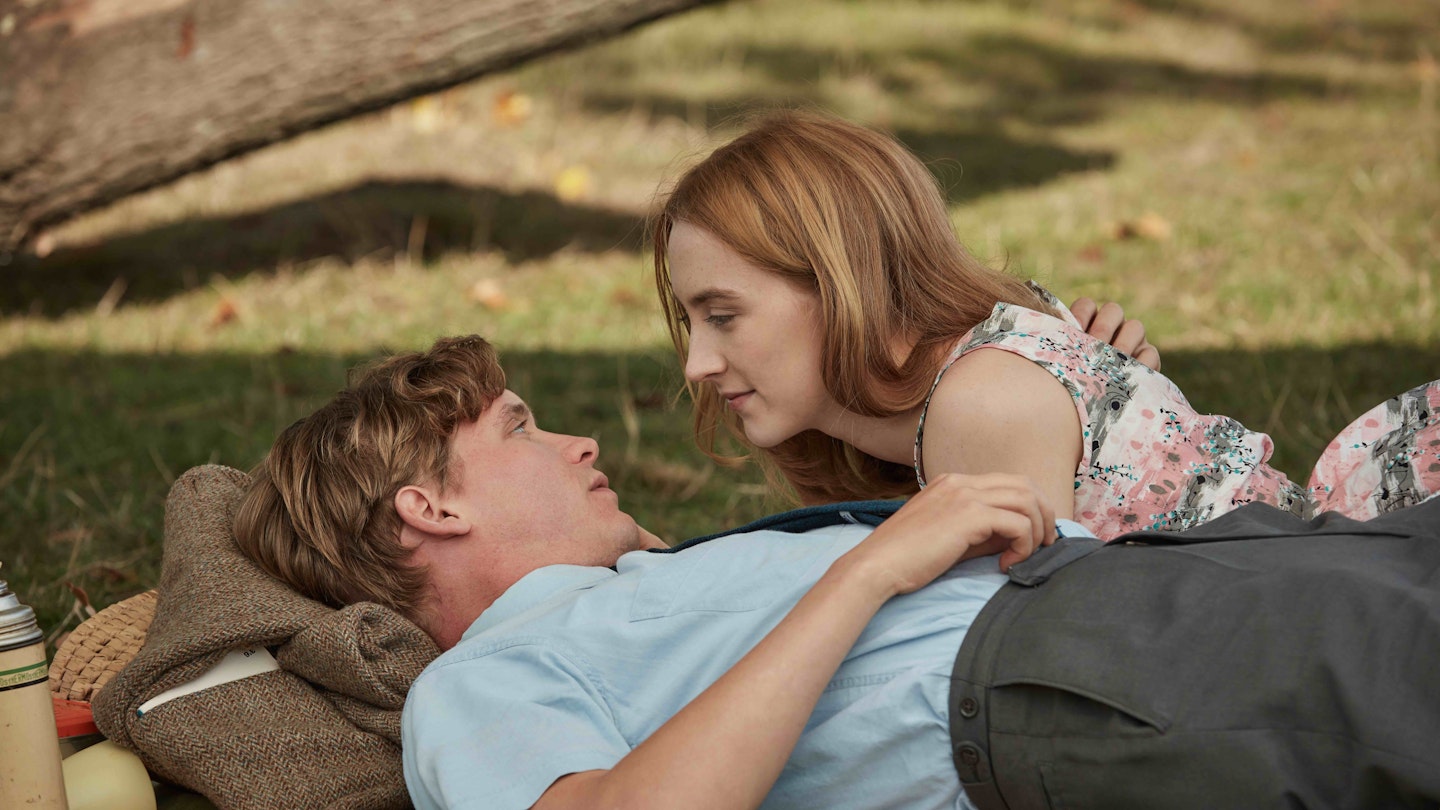In 1963, a ‘youthquake’ hit Britain. A revolution in art, fashion, politics and music saw young people become a cultural force, and presence, for arguably the first time. But for those coming of age in 1962, it was a very different story — the decade was not yet swinging.

Adapted for screen by Ian McEwan from his 2007 novella, this debut feature from four-time Olivier Award-winning theatre director Dominic Cooke is, at its heart, a deceptively simple tale. Edward (Howle) and Florence (Ronan) are a young couple in love, spending the first night of their marriage in a hotel on Chesil Beach. Theirs is, as we find out in flashback, a fiercely passionate connection, set in motion at first sight across an Oxford college hall. But, as it turns out, for all their sincere emotion, this is an attaction they will struggle to fulfil — thanks to a paralysing ignorance, and fear, of the physical act of sex.
Missing out on the cultural revolution by a matter of months, they still live in the stymied, prematurely middle-aged world of clinking cutlery in muted rooms (a recurring trope); it is a film punctuated by heavy, ponderous silences, and further flashbacks reveal family circumstances (including Edward’s brain-damaged, stricken mother, played by Duff) that further compound their awkwardness.
Cooke shoots the beautiful scenery in sombre tones of blue, grey and stone.
As the momentous evening progresses, Cooke creates a strange, off-kilter feel — the hotel’s waiters seem to be sniggering at the couple from the other side of their room’s door — and shoots the beautiful scenery in sombre tones of blue, grey and stone. The mood is overwhelmingly melancholy, if punctuated sporadically by humorous moments with the supporting cast (Watson’s snobby matriarch stands out), and Ronan and Howle expertly convey their characters’ pent-up frustrations through a look or a gesture.
However, where the film starts to falter is in dialogue that, without the exposition of the novella, is at best stilted, at worst almost a series of non sequiturs. In some scenes it’s almost as if they are speaking in riddles. By the time apprehension turns into outright crisis, it is with a sense of detachment that you watch the calamity unfold.
Nonetheless, as time moves on in the last 20 minutes, first to 1975, then 2007, suddenly the high feeling that’s so long been held back floods the screen. It’s a welcome change of energy that triggers empathy and genuine engagement. In one sense it’s a clever move from Cooke, reflecting the characters’ — and society’s — emotional evolution as the 20th century progressed and then turned. However, in terms of audience investment in Edward and Florence’s fate, it’s perhaps just too little, too late.


